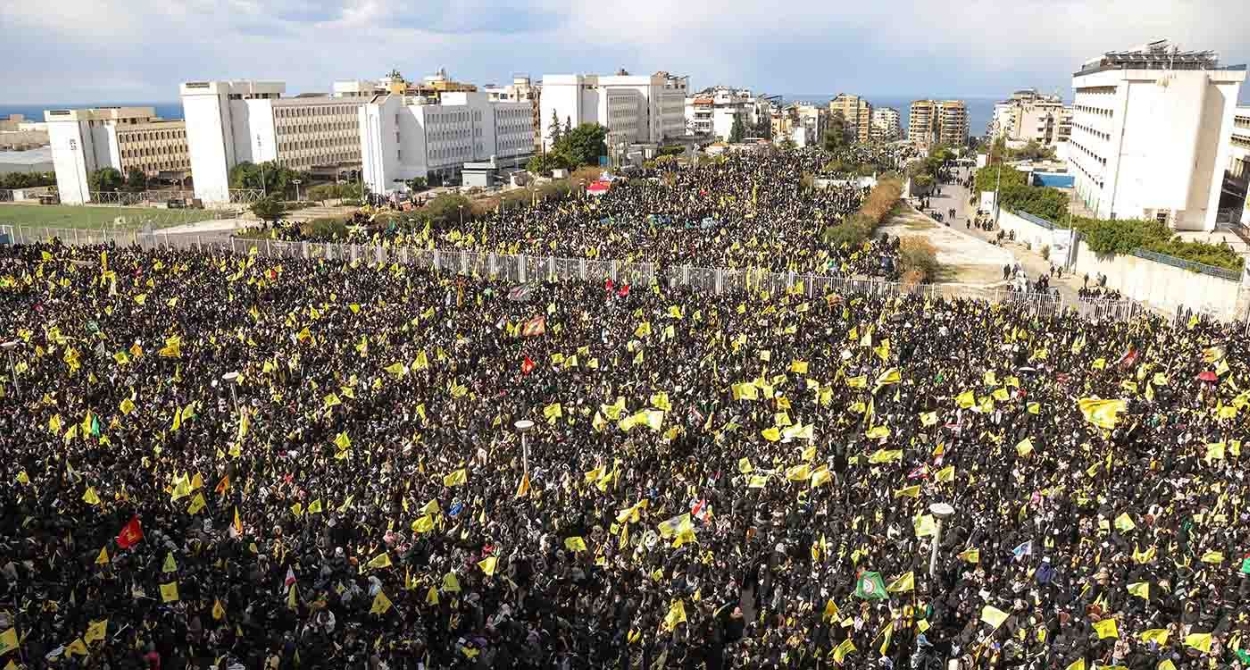Lebanese President Aoun during meeting with Iranian delegation: Lebanon is exhausted of others’ wars on its territory
BEIRUT — Lebanese President Joseph Aoun recently held discussions with an Iranian delegation led by Mohammad Bagher Ghalibaf, the Speaker of the Iranian Parliament. The delegation included Foreign Minister Abbas Araghchi and Iranian Ambassador to Lebanon Mojtaba Amani. Lebanese Foreign Minister Youssef Ragi was also present at the meeting.
During the talks, President Aoun expressed Lebanon’s exhaustion from being a battleground for external conflicts. He emphasized Lebanon’s commitment to fostering strong, mutually beneficial relations with Iran and reiterated the country’s heavy sacrifices in defending the Palestinian cause, voicing hope for a just resolution.
Ghalibaf underscored Iran’s support for Lebanon’s sovereignty and independence, assuring that Tehran respects decisions made by Lebanon without external interference.
Meeting Amid Regional and Internal Tensions
The meeting occurred on the sidelines of the Iranian delegation’s participation in the funeral of former Hezbollah Secretary-General Hassan Nasrallah and senior official Hashem Safieddine, who was expected to succeed Nasrallah.
In response to Aoun’s remarks on state control over arms, Hezbollah organized protests at Beirut’s airport, displaying images of Nasrallah and asserting the party’s position. A Hezbollah statement declared, “We are here, and our weapons are a red line as long as Israel occupies our land.”
At the funeral, Hezbollah Deputy Secretary-General Naim Qassem stated, “The resistance is not over, and we will not accept continued killings and occupation.”

Debates on Disarmament and National Security
A Hezbollah Member of Parliament revealed that the party is open to discussing its arsenal within the framework of national dialogue. However, a former official noted that Hezbollah faces three potential paths: negotiating a phased disarmament with the Lebanese Army, returning weapons to Iran, or selling them due to financial constraints.
Observers suggest Hezbollah’s justification for retaining arms relies on instability in Syria and threats to Shiites there. However, opposition sources argue that Lebanon’s efforts to secure its borders and demarcate disputed areas weaken this rationale. Syrian Foreign Minister Asaad al-Shibani is expected to visit Lebanon soon to discuss refugee issues and border security.
New Approach to National Dialogue
Sources close to President Aoun indicated plans to form a national dialogue body, not to develop a defense strategy but as an advisory institution supporting the presidency. Aoun reaffirmed that the army would be responsible for drafting a defense strategy as part of a comprehensive national security plan.
Despite calls for dialogue, Hezbollah remains reluctant to disarm, fearing a loss of influence over Lebanon’s political system and deep state, which it sustains through its Iranian-backed military capabilities. As tensions persist, the balance between state sovereignty and Hezbollah’s role continues to challenge Lebanon’s stability.

















